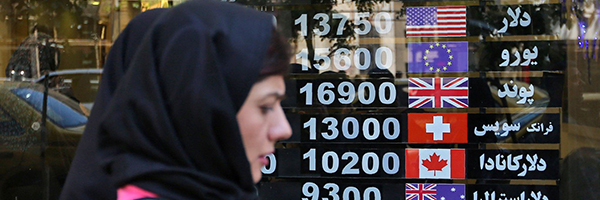Economic hegemony imposed on Middle East
 China Daily Global, August 25, 2022 — CAIRO-By hiking interest rates four times in a row this year, the US Federal Reserve halted its ultraloose monetary policy that had been in place for years, forcing countries in the Middle East to struggle for financial resilience in the face of various domestic and international challenges.
China Daily Global, August 25, 2022 — CAIRO-By hiking interest rates four times in a row this year, the US Federal Reserve halted its ultraloose monetary policy that had been in place for years, forcing countries in the Middle East to struggle for financial resilience in the face of various domestic and international challenges.
Abusing the US dollar’s status as the world’s dominant reserve currency, the United States continues to play the game of loosening and tightening monetary policy in favor of its own interests, regardless of the difficulties of developing countries face in maintaining macroeconomic and financial stability in a highly unsettled global economic environment.
Many officials and scholars in the Middle East have denounced the US practice of manipulating its monetary policy at the expense of other nations, advocating “de-dollarization” and calling for an end to “the US dollar’s hegemony”.
After the Federal Reserve increased interest rates, the International Monetary Fund warned in April that the Fed’s attempts to combat price pressures could hit emerging markets laden with foreign currency debt.
“A disorderly tightening of global financial conditions would be particularly challenging for countries with high financial vulnerabilities, unresolved pandemic-related challenges, and significant external financing needs,” it said.
In Tunisia, a strong dollar and sharp rises in grain and energy prices are expected to widen its budget deficit to 9.7 percent of GDP this year from a previous forecast 6.7 percent, said Tunisian central bank governor Marouane Abassi.
By the end of 2022, the country’s outstanding public debt will reach 114.1 billion dinars ($35.86 billion), accounting for 82.6 percent of its GDP. Tunisia is heading for default if the current deterioration in its finances continues, warned investment bank Morgan Stanley in March.
Hot money outflow
In Egypt, foreign investors, looking for safe havens to put their money after the Federal Reserve’s interest rate hikes, pulled more than $20 billion of hot money outside the country, said Walid Gaballah, a member of the Egyptian Association for Political Economy.
The outflow of hot money is only one side effect. Egypt also saw a decline in foreign reserves, currency devaluation and rising commodity prices. The Egyptian central bank raised benchmark interest rates by 200 basis points on May 19 after prices surged. It raised rates for the first time in 18 months in March by 100 basis points.
Gaballah said it’s impossible for Egypt not to take the US Federal Reserve’s policies into account when making choices because of the dollar’s hegemonic status.
Roger Kelly, an economist at the European Bank for Reconstruction and Development, said that the Fed’s decision to increase interest rates heightened risks for Turkiye.
Turkiye’s annual inflation hit 79.6 percent in July, the highest in 24 years. One dollar was traded at 18.09 Turkish liras on Sunday morning, marking over 100 percent value loss on the part of the lira compared to a year ago when the exchange rate was 8.45 liras per dollar.
While developing countries lose, the US gains. Data shows that the Federal Reserve’s balance sheet has grown from around $4 trillion in March 2020 to nearly $9 trillion now.
Experts believe another strength of the US dollar lies in its power to enforce sanctions. The US could impose sanctions on individuals, organizations or even an entire country by blocking its access to SWIFT.
Iran has been a target of cruel US sanctions over the past four decades. The sanctions intensified following Washington’s withdrawal from a 2015 nuclear deal.
Ahmad Al-Ashqar, a Syrian political expert, said the US aims to continue imposing illegal economic sanctions that impede the reconstruction of Syria’s infrastructure and prevent the shipment of necessary medical equipment and medicine.
Xinhua
